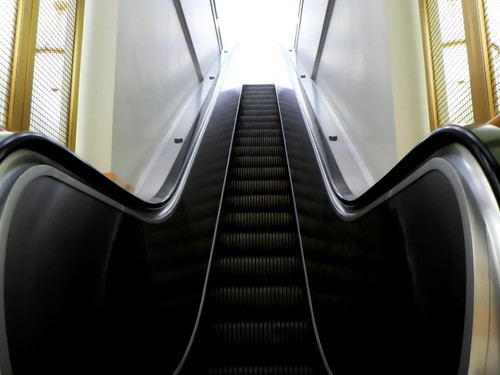 Physical therapy is a movement profession. We are undoubtedly the experts in movement, exercise, and function - and our professional training reflects this.
Physical therapy is a movement profession. We are undoubtedly the experts in movement, exercise, and function - and our professional training reflects this.
Subsequent to this, the vision of the American Physical Therapy Association is "transforming society by optimizing movement to improve the human experience". Let's take a moment to consider the meaning of this statement fully.
Since the dawn of mankind, an integral part of the human experience is function and movement. Neither of these are passive by definition.
In order to transform society, we need to focus on the active.
But there is a hypocrisy to be found deep within these words. If we are focusing on the active, then why do we continue to put such a heavy emphasis on passive interventions?
It is a troubling thought for me at times, a strange conundrum and hypocrisy that befuddles me to this day.
Movement is not, by definition, a passive activity. Optimizing movement demands observation and analysis, education and coaching, feedback and review.
Yet our profession spends a lot of time focusing on gaining what amounts to a toolbox of passive strategies. Worse yet, we are focusing on passive interventions that may have little to no relevance to the problem at hand, or have little evidence to support their use.
Sadly, we perpetuate passivity at the most elemental level of our thinking.
Meanwhile, we spend little time focusing on how the mind works or how we (or our patients) think. We rarely focus on our own logical fallacies or cognitive biases and their impact on our own clinical reasoning. We spend little time discussing how to be a better teacher, better mentor, and a better facilitator.
The latter skills are as teachable as the former "tools". But the former reign supreme.
Why do we continue to advocate for, promote, and actively perpetuate the perceived necessity and value of passive interventions?
The profession of physical therapy has perhaps some of the greatest core knowledge in any health care profession. It ranges from anatomy and physiology to spinal cord injuries and sports medicine. We have the capacity to transform society, without a doubt. But there is the hypocrisy of passivity. For transformation to occur, it will need to be active.
We need tools, yes - the ones that allow us to be better teachers, better facilitators, and better mentors.
Forget about the adjunctive passive therapies. The answers lie not in the stuff we do to people or on people, it is the stuff we do with people.
Let's put an end to the hypocrisy. If we are going to be the experts in movement, exercise and function - if we are going to "talk the talk" about transforming society and optimizing movement - then let's get our actions consistent with that premise once and for all. It's time to walk the walk.
Photo credits: frozenchipmunk
 "Running Injuries: Etiology And Recovery- Based Treatment" (co-author Bridget Clark, PT) appears in the third edition and fourth editions of "Clinical Orthopaedic Rehabilitation: A Team Approach" by Charles Giangarra, MD and Robert C. Manske, PT.
"Running Injuries: Etiology And Recovery- Based Treatment" (co-author Bridget Clark, PT) appears in the third edition and fourth editions of "Clinical Orthopaedic Rehabilitation: A Team Approach" by Charles Giangarra, MD and Robert C. Manske, PT.
 Allan Besselink, PT, DPT, Ph.D., Dip.MDT has a unique voice in the world of sports, education, and health care. Read more about Allan here.
Allan Besselink, PT, DPT, Ph.D., Dip.MDT has a unique voice in the world of sports, education, and health care. Read more about Allan here.
 Top 5 finalist in three categories: "Best Overall Blog", "Best PT Blog" and "Best Advocacy Blog".
Top 5 finalist in three categories: "Best Overall Blog", "Best PT Blog" and "Best Advocacy Blog".